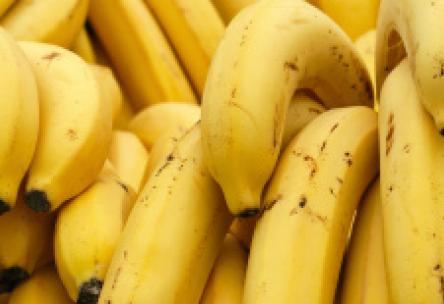The truth about popular, potentially harmful eating plans

Dieting and the internet is a chaotic combination. In the US alone, 264 million people are online, and an estimated 45 million Americans are on a diet. Needless to say, finding trustworthy web resources can feel like an endless maze of ads touting acai berry “miracle” pills and green coffee extract.
It’s easy to get caught up in diet trends, says Heather Mangieri, RD, and spokesperson for the Academy of Nutrition and Dietetics. “There’s no shortage of nutrition misinformation floating around the internet. I could make a full-time job out of reading fad diet books and nutrition trends and explaining the flaws in the theories. Every day new books and articles are published that promote the latest and greatest.” But nutrition is a science, not an opinion, she says. “Once people stop chasing the latest gimmick, and accept that eating a healthy, balanced diet and being physically active is the best choice, they are on their way to success.”
Like many of us, you may be a victim of fad diet misinformation. But don’t stress. We asked Mangieri for the truth about six common myths.
Claim #1: You shouldn’t eat gluten
It seems that everyone has a gluten problem, but a diet without wheat may be more hyped than healthful.
HM: “Gluten has a bad reputation for sure, but there is nothing magical about eliminating gluten from the diet, unless you have celiac disease or suffer from non-celiac gluten sensitivity. Giving up gluten means giving up a lot of processed foods and often leads to eating a ‘cleaner’ diet. Anyone that trades in brownies and white bread for a diet richer in fruits, vegetables, lean proteins, and healthier whole grains is going to feel better.”
Claim #2: A juice detox helps weight loss
As juice cleanses grow in popularity, you may wonder if liquefying your calories can help you shed pounds and detoxify.
HM: “Any diet that restricts calories will likely result in weight loss, but that doesn’t make it healthy. Most dietary programs that are marketed as a detox or cleanse are restrictive and unbalanced, leaving out vital nutrients that the body needs. Juice (and vegetable detox programs as well) are not a source of complete protein and lack other nutrients such as vitamin D. Detox diets can also result in rebound weight gain. Research shows us that food restriction and depriving ourselves of a particular food can increase cravings for that food. For successful weight loss, create a food plan that includes all of the essential nutrients needed, while restricting the extras, such as added sugars and sweets.”
Claim #3: You can live on bananas
Popularized on Instagram, the Banana Island Diet involves eating one type of fruit for three to 30 days.
HM: “Bananas are a nutrient-rich fruit that make a great addition to any eating plan, but you won’t survive on bananas alone. The body needs a combination of carbohydrates, protein, and healthy fats for proper growth and development. A medium banana (7 to 8 inches long) has 110 calories and provides 30 grams of carbs, three grams fiber and provides 13 percent of daily recommended potassium needs, along with 15 percent of daily recommended intake of vitamin C and manganese. Bananas, however, do not contain any protein or fats, so these essential macronutrients will need to come from other dietary sources. Registered dietitians encourage a variety of foods for a reason; you can’t get all of your essential nutrients from one food alone.”
Claim #4: An all-raw diet is the way to go
It’s rumored that eating uncooked foods is more nutritious than heated meals, but is the diet really sustainable?
HM: “Following a raw food diet definitely has some nutritional perks, such as increased vitamins, minerals, phytonutrients, and fiber; but that doesn’t mean it’s the perfect diet for everyone. A raw food diet can be difficult to follow, especially for those who like to eat out. Getting adequate protein, calcium, and vitamin B12 can be challenging when following an all-raw diet. Another concern is foodborne illness. Because some raw, unpasteurized foods are linked to food poisoning, following an all-raw diet means taking extra precautions when cleaning and preparing foods.”
Claim #5: You need way more protein
You may associate a high-protein diet with muscle building, but it’s not a magic bullet for a toned body.
HM: “Proteins are part of every cell, tissue, and organ in our bodies and are constantly being broken down and replaced. Most adults in the United States get more than enough protein to meet their needs. It's rare for someone who is healthy and eating a varied diet to not get enough protein. Some people, such as athletes and women who are pregnant or lactating do require more protein.” Adult women need 46 grams of protein a day (71 grams if pregnant or breastfeeding). Men need 56 grams a day.
Claim #6: If you diet, you don’t have to exercise
If you exercise, you can eat whatever you want; if you diet, there’s no need to work out … right?
HM: “It’s possible to lose weight with diet alone, but exercise is a critical component to keeping weight off. In fact, exercise may be more important for maintaining a healthy weight than it is in helping to lose weight. Most weight loss occurs because of decreased caloric intake. However, evidence suggests that to maintain weight loss it is important to participate in regular physical activity. Body weight is not the only reason to participate in exercise. Physical activity reduces risks of cardiovascular disease and diabetes beyond that produced by weight reduction alone.”


